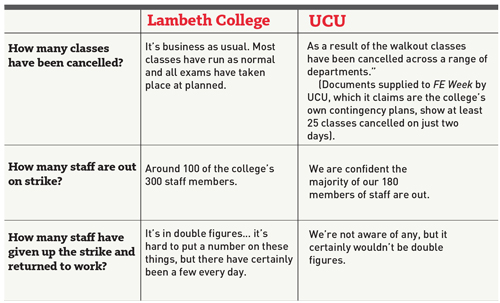Bright Assessing chief executive Krissy Charles-Jones (pictured) has said the firm was “no longer a training provider” after all its previous awarding organisations walked away.
An email allegedly sent by a Bright employee to a learner on June 3, which was posted on a Facebook forum called the Bright Training Problem, said the Warwickshire-based firm had pulled out of the training market and the plan was now to “develop the company into e-learning software”.
It added Bright had arranged for the learner to be transferred to an unidentified “alternative provider”, which would cause “minimum disruption” to training.
After being asked to comment on the email by FE Week, Ms Charles Jones said: “We are no longer a training provider, correct.”
She said: “All learners were asked if they wanted to be transferred before doing so”.
Ms Charles-Jones declined to comment on how many learners had been sent the email and, when asked if refunds would be issued, she said Bright was “in the process of sorting out learners”.
It is thought Bright no longer has a certificating organisation.
Awarding body OCR, which confirmed it had cut ties with Bright last month, announced on June 5 its malpractice committee had completed a “lengthy investigation” into the firm.
A spokesperson said the committee found “there had been a breakdown in Bright’s quality assurance arrangements” for lifelong learning courses run by Bright and certificated by OCR.
Ms Charles Jones was unavailable for comment on the OCR ruling.
It comes after NCFE stopped certificating Bright courses in February following its four-month investigation into alleged malpractice.
The awarding organisation released a statement summarising the findings three weeks ago after Bright’s appeal against the findings of the investigation was rejected by NCFE.
The Bright investigation claimed that 225 former Bright learners had been de-certificated because their portfolios were either sub-standard or could not be found.
Ms Charles Jones claimed NCFE was to blame for qualifications being revoked as it had not carried out sufficient “external moderation” of Bright courses.
A statement released on Bright’s website at the time the findings came out said: “We have issued a complaint to Ofqual about NCFE and hope that as an independent regulator of all awarding organisations they will act and be seen as completely independent, impartial and unbiased.”
An Ofqual spokesperson said: “There are ongoing legal issues between NCFE and Bright. Because of this we are unable to progress any appeal or comment any further at this time.


